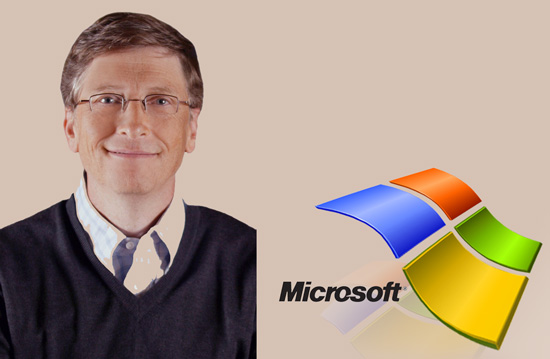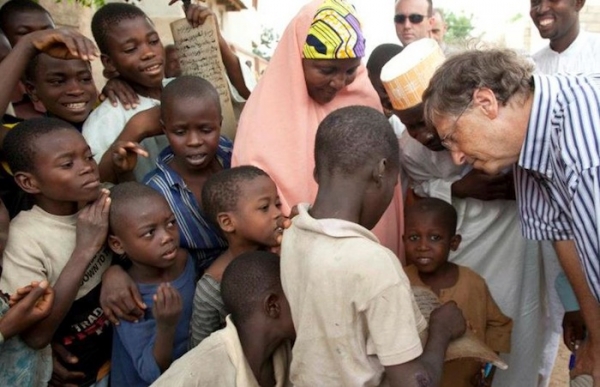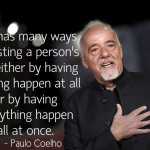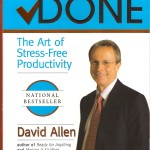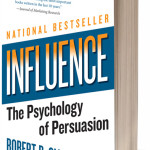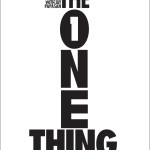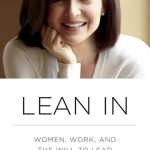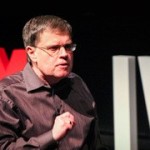[ PROFILES – ICONS ] an ongoing series on inspiring leaders
“I failed in some subjects in exam, but my friend passed in all. Now he is an engineer in Microsoft and I am the owner of Microsoft.”
Bill Gates is one of the best-known entrepreneurs of the personal computer revolution.
William Henry “Bill” Gates III (born October 28, 1955) is an American business magnate, philanthropist, investor, computer programmer, and inventor. Gates is the former chief executive and chairman of Microsoft, the world’s largest personal-
computer software company, which he co-founded with Paul Allen.
He is consistently ranked in the Forbes list of the world’s wealthiest people and was the wealthiest overall from 1995 to 2009—excluding 2008, when he was ranked third;
in 2011 he was the wealthiest American and the world’s second wealthiest person.
According to the Bloomberg Billionaires List, Gates became the world’s richest person again in May 2013, a position that he last held on the list in 2007.
As of June 2014, he is still the richest.
During his career at Microsoft, Gates held the positions of CEO and chief software architect, and remains the largest individual shareholder, with 6.4 percent of the common stock. He has also authored and co-authored several books.
Gates has been criticized for his business tactics, which have been considered anti-competitive, an opinion which has in some cases been upheld by judicial courts. In the later stages of his career, Gates has pursued a number of philanthropic endeavors, donating large amounts of money to various charitable organizations and scientific research programs through the Bill & Melinda Gates Foundation, established in 2000.
Gates stepped down as chief executive officer of Microsoft in January 2000. He remained as chairman and created the position of chief software architect for himself. In June 2006, Gates announced that he would be transitioning from full-time work at Microsoft to part-time work, and full-time work at the Bill & Melinda Gates Foundation. He gradually transferred his duties to Ray Ozzie, chief software architect, and Craig Mundie, chief research and strategy officer. Gates’s last full-time day at Microsoft was June 27, 2008. He stepped down as chairman of Microsoft in February 2014, taking on a new post as technology advisor to support newly appointed CEO Satya Nadella. [From: Wikipedia.com]
“Before you were born, your parents weren’t as boring as they are now. They got that way from paying your bills, cleaning your clothes and listening to you talk about how cool you thought you were. So before you save the rain forest from the parasites of your parent’s generation, try delousing the closet in your own room.”
In one of his most candid interviews ever, Microsoft founder Bill Gates (the world’s second-richest man) revealed personal details never heard before, along with a little tidbit that he was probably supposed to keep secret.
We encourage you to read about his fascinating interview with the Daily Mail — it’s a rare look into the psyche of one of the most interesting people in the world — but if you’d like a condensed version, here are 10 key personal details and insights Gates revealed in the wide-ranging talk:
1. His kids like to tease him by singing the song “Billionaire” by Travie McCoy and Bruno Mars.
2. He’s now given $28 billion to charity.
3. His three children, currently aged 15, 12 and nine, will reportedly inherit $10 million each (although Gates wouldn’t disclose that amount in the interview), a slender sliver of his $56 billion net worth, because Gates says, “I don’t think that amount of money would be good for them.”
4. Did U2 star Bono invite Gates backstage when U2 was performing in Seattle? Not necessary, because Bono was staying at Bill’s house that night.
5. Now dedicating his career to his $37.1 billion charitable foundation, Gates says when asked if he’ll return to Microsoft full-time: “No. I’m part-time involved. But this is my job now.”
6. Why try to cure malaria instead of cancer? Says Gates, “The world is putting massive amounts into cancer, so my wealth would have had a meaningless impact on that.”
7. He haggles for good prices on vaccines: “We are super-smart about what we pay. We get price reductions. We can track how many kids get the vaccines.”
8. People in Third World countries have no idea who he is. “They don’t know who I am, because it doesn’t relate to their world. I went to one place with the chief minister and someone said, ‘Who is this guy?’, and the chief minister said, ‘This is a white-skinned guy I brought with me.'”
9. He has a Twitter account, but had a problem with Facebook: “… Because the friend requests got out of hand.”
10. And the secret: Gates inadvertently revealed that his friend, Facebook founder Mark Zuckerberg , is engaged to longtime girlfriend Priscilla Chan . During the interview, Gates was talking about Zuckerberg and referred to Chan as Mark’s “fiancée Priscilla.” Oops.
It could be that Bill was wrongly assuming the couple was engaged. According to Business Insider :
“Facebook’s head of communications Elliot Schrage suggested that Bill Gates was mistaken. ‘If [Mark is engaged, Bill Gates] knows something I don’t know. Gates’s communications guy just wrote to apologize for the misunderstanding.'” [From: Edition.cnn.com]
“Don’t compare yourself with anyone in this world…if you do so, you are insulting yourself.”
Bill & Melinda Gates Foundation (B&MGF or the Gates Foundation) is one of the largest private foundations in the world, founded by Bill and Melinda Gates. It was launched in 2000 and is said to be the largest transparently operated private foundation in the world. It is “driven by the interests and passions of the Gates family”. The primary aims of the foundation are, globally, to enhance healthcare and reduce extreme poverty, and in America, to expand educational opportunities and access to information technology. The foundation, based in Seattle, Washington, is controlled by its three trustees: Bill Gates, Melinda Gates and Warren Buffett. Other principal officers include Co-Chair William H. Gates, Sr. and Chief Executive Officer Susan Desmond-Hellmann.
It had an endowment of US$38.3 billion as of 30 June 2013. The scale of the foundation and the way it seeks to apply business techniques to giving makes it one of the leaders in the philanthro-capitalism revolution in global philanthropy,[6] though the foundation itself notes that the philanthropic role has limitations. In 2007, its founders were ranked as the second most generous philanthropists in America, and Warren Buffett the first. As of May 16, 2013, Bill Gates had donated US$28 billion to the foundation. [From: Wikiedia.org]
“I choose a lazy person to do a hard job.
Because a lazy person will find an easy way to do it.”
In 1987 Gates was listed as a billionaire in Forbes magazine’s 400 Richest People in America issue, just days before his 32nd birthday. As the world’s youngest self-made billionaire, he was worth $1.25 billion, over $900 million more than he’d been worth the year before, when he’d debuted on the list.
- Time magazine named Gates one of the 100 people who most influenced the 20th century, as well as one of the 100 most influential people of 2004, 2005, and 2006. Time also collectively named Gates, his wife Melinda and U2’s lead singer Bono as the 2005 Persons of the Year for their humanitarian efforts.
- In 2006, he was voted eighth in the list of “Heroes of our time”.
- Gates was listed in the Sunday Times power list in 1999,
- Named CEO of the year by Chief Executive Officers magazine in 1994,
- Ranked number one in the “Top 50 Cyber Elite” by Time in 1998,
- Ranked number two in the Upside Elite 100 in 1999 and,
- Was included in The Guardian as one of the “Top 100 influential people in media” in 2001.
- According to Forbes, Gates was ranked as the fourth most powerful person in the world in 2012, up from fifth in 2011.
In 1994, he was honored as the twentieth Distinguished Fellow of the British Computer Society.
Gates has received honorary doctorates from
– Nyenrode Business Universiteit, Breukelen, The Netherlands, in 2000;
– the Royal Institute of Technology, Stockholm, Sweden, in 2002;
– Waseda University, Tokyo, Japan, in 2005;
– Tsinghua University, Beijing, China, in April 2007;
– Harvard University in June 2007;
– the Karolinska Institutet, Stockholm, in January 2008,
– and Cambridge University in June 2009.
– He was also made an honorary trustee of Peking University in 2007.
- Gates was made an honorary Knight Commander of the Order of the British Empire (KBE) by Queen Elizabeth II in 2005.
- He and his wife were awarded the Order of the Aztec Eagle in November 2006 for their philanthropic work around the world in the areas of health and education, particularly in Mexico, and specifically in the program “Un país de lectores“.
- Gates received the 2010 Bower Award for Business Leadership from The Franklin Institute for his achievements at Microsoft and his philanthropic work.
- Also in 2010 he was honored with the Silver Buffalo Award by the Boy Scouts of America, its highest award for adults, for his service to youth.
“Success is a lousy teacher. It seduces smart people into thinking they can’t lose.”
- Entomologists named Bill Gates’ flower fly, Eristalis gatesi, in his honor in 1997.
- In 2002, Bill and Melinda Gates received the Jefferson Award for Greatest Public Service Benefiting the Disadvantaged.
- In 2006, Gates received the James C. Morgan Global Humanitarian Award from The Tech Awards.
[From: Wikipedia.com]
“If you give people tools, and they use their natural abilities and their curiosity, they will develop things in ways that will surprise you very much beyond what you might have expected.”
Bill Gates Would Be World’s Richest Man If He Wasn’t So Charitable
That’s right. If Bill Gates wasn’t hellbent on fixing worldwide health and education problems, he would still sit atop Forbes’s billionaire list.
The Microsoft co-founder is expected to notch in at number two on the magazine’s forthcoming 2011 billionaires list, with an estimated worth of $49 billion, behind Mexican business magnate Carlos Slim (estimated wealth $60 billion). While Warren Buffet is presumed to round out the top three.
But here’s the crazy part: according to David Lincoln, director of global valuations at wealth research firm Wealth-X, if Gates didn’t give away so much dough, including $28 billion to his Bill and Melinda Gates Foundation, he would have a net worth of about $88 billion, making him the richest man in the world.
That means Bill Gates’s charitable contributions are more than the combined net worth of Steve Jobs and Mark Zuckerberg. And he’s still number two! Seems $30 billion can’t hurt him.
But not everyone is impressed with Gates’s philanthropy. Carlos Slim has gone on record saying that good businessmen are ones that create jobs by investing their money, “not by being Santa Claus.” Whatever, dude. [From: Complex.com]
“Most people overestimate what they can do in one year and underestimate what they can do in ten years.”
For the past five years, Bill and Melinda Gates have published an annual letter, modeled on Warren Buffett’s legendary Berkshire Hathawayshareholder missives, which help set the global philanthropic agenda. This year, they’ve taken a different tack: rather than list their foundation’s wins, losses and priorities, the letter, released today, takes the form of a manifesto. Actually, an anti-manifesto. And in dissecting its details with Bill Gates yesterday – “the exercise of writing forces you to have logic and critical reasoning,” he acknowledges, sporting sharp new black-framed eyeglasses – you get a surprisingly clear window into how the planet’s richest person and biggest philanthropist plans to spend the rest of his life.
Rather than posit on what’s required to end extreme global poverty – the primary goal of the Gates Foundation – this year’s letter focuses on three myths that impede progress. Specifically, that poor countries are doomed to stay poor, that foreign aid is a waste of money and that saving Third World lives just creates more starving mouths to feed. As statistics obliterate the fallacies of all three – Matthew Herper thoroughly debunked the Malthusian worries in Forbes two years ago — the Gates’ (Bill takes on the first two, Melinda the third) make short work of these arguments.
For me, the three myths prove less telling about Bill and Melinda Gates than three other threads that cut across the letter.
First, that for all the cash and brainpower, they can only succeed if governments buy-in (or at least don’t sabotage progress). The foreign aid example is obvious, and the recent U.S. budget compromise actually increases spending on polio eradication by $50 million (the Gates Foundation still doubles what the U.S. government provides). Gates points out that, since he has the “capitalistic freedom” to allocate his resources as he chooses, his foundation serves a de facto due diligence that this is money well-spent.
But at a point not too far in the future, “you’ll almost have to give a reason why a country is a poor,” says Gates. And that reason, perhaps save a few geographically-cursed countries in land-locked Africa, will be government policies. Those that offer market-based incentives and invest in health and education, says Gates, will almost surely pull themselves up, if they haven’t already. It’s why China has so thoroughly outperformed its fellow population behemoth, India. The poor souls trapped in North Korea? Gates offers no promises.
“Life is not fair – get used to used to it”
Second, you get a sense of optimism. For all of Gates’ data-laden wonk-speech, he’s one of humanity’s biggest cheerleaders. “There are no headlines, ‘Oh my God, look at what’s happened over 25 years of progress,’” he says, adding “the change since I was born to now is very dramatic.”
And he’s now making a prediction: There will be almost no more poor countries by 2035. The “developing world,” to a large degree, will no longer exist. Two years ago, Gates funded the Commission on Investing in Health, led by Larry Summers and 25 global experts in various disciplines, which envisioned a convergence of advances that will allow almost every country on the planet to see their children live past five years old at a rate equal or better than the U.S. standard in 1980 – a bellwether stat for Gates that indicates “health equity.”
That 2035 date also coincides with the year Bill Gates turns 80, a fact not lost on him. It’s the third underlying message of the letter: a personal blueprint for the next two decades. “It’s easier to think about years where you expect to be around,” Gates says. “It’s kind of nice, people can either tell me, ‘Well you really messed that up’ or ‘You got that right.’” For a human atlas, who can reel off the health care policy differences between Vietnam over Nigeria, or the checklist needed to bring up Haiti, the 2035 health equity goal provides “a finite problem” to solve.
It also matches the way he and Melinda have built the Gates Foundation, which will wind down, deploying all its resources on their stated goals – health equity currently sits at number one — within 20 years of their passing. “Rich people in those times will be able to pick what the problems are then,” says Gates. His work, however, will be done. It starts again today. [From: Forbes.com]
“As we look ahead into the next century, leaders will be those who empower others.”
Additional video here Talking to 60 Minutes
If you like this story, CLICK HERE to join the tribe of success-minded people just like you. You will love our weekly quick summaries of top stories, talks, books, movies, music and more with handy downloadable guides, cheat sheets, cliffs notes and quote books.
